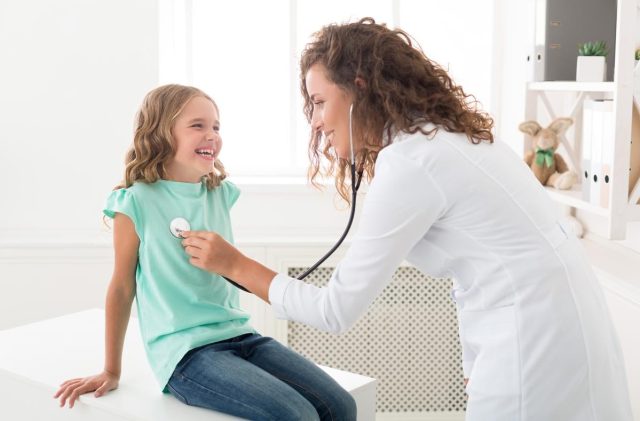By Beth Gilbert HealthDay Reporter
The annual meeting of the American Academy of Pediatrics was held this year from Sept. 27 to Oct. 1 in Orlando, Florida, and attracted participants from around the world, including primary care pediatricians, pediatric medical subspecialists, pediatric surgical specialists, and other health care professionals. The conference featured scientific sessions that focused on the latest advances in the care of infants, children, adolescents, and young adults.
In one study, Stephanie Chao, M.D., of the Stanford University School of Medicine in Palo Alto, California, and colleagues found that a ban on high-capacity magazines could have the greatest impact on reducing child deaths from mass shootings.
The authors evaluated mass shootings by state using 10 categories of gun violence prevention laws and identified 131 pediatric mass shootings between 2009 and 2020. The researchers found that a ban on high-capacity magazines reduced the risk for child mass shootings by 91 percent. At the time of the study, only eight states had high-capacity magazine bans, including California, Colorado, Connecticut, Maryland, Massachusetts, New Jersey, New York, and Vermont. Currently, only 14 states have such bans.
“Sadly, because gun violence is the leading cause of death in children, physicians are often called upon to answer clinical questions about guns, which really are safety practice and policy implication questions,” Chao said. “Many physicians (surgeons, pediatricians, primary care) are also actively engaged in trying to create safer communities. So I think this research, sadly, applies to the new reality of clinical practice for physicians.”
In another study, Jennifer Allen, D.O., of Akron Children’s Hospital in Ohio, and colleagues found that racial and socioeconomic disparities exist in the emergency management of unintentional ingestions in children.
The authors assessed the health records of 4,411 children younger than 6 years of age who had unintentional ingestions between January 2013 and March 2024. The researchers identified racial and socioeconomic disparities with the management of unintentional ingestions among children in the emergency department. Specifically, African American patients younger than the age of 6 years were more likely to have a social work consult, children services bureau referral, and urine drug screen compared with their White counterparts. A higher severity of illness, a lower Childhood Opportunity Index, and pharmaceutical ingestions also resulted in either a social work consultation, a children services bureau referral, or both.
“Unintentional ingestions happen. However, as pediatric emergency medicine providers, it is our job to provide equitable care for all patients,” Allen said. “This study is important in understanding where underlying bias exists in emergency department management and where changes can be made to address this problem.”
Taylor Rosenbaum, M.D., of the Baylor College of Medicine/Texas Children’s Hospital in Houston, and colleagues found that parents of young people hospitalized for suicidal thoughts or actions want to ensure firearm safety in the home and securely store firearms to prevent harm.
The authors surveyed 100 caregivers of young people (ages 8 to 21 years) admitted to the hospital for suicidal ideation or suicide attempt. The caregivers were questioned regarding their attitudes toward firearm safe storage counseling and firearm lock distribution in the hospital setting, and interested families were provided with safe storage counseling and a free firearm lock. The researchers found that only just over half of all caregivers were screened for firearm ownership. Meanwhile, almost 20 percent of firearm owners did not store them safely. The vast majority of parents — both those who owned and did not own firearms — felt that it was very important for their health care team to screen for firearm ownership, offer guidance on safe storage of firearms, and distribute firearm locks.
“Caregivers of children admitted for suicidality wanted to discuss firearm safe storage during their child’s hospitalization and were extremely grateful to receive a free firearm lock,” Rosenbaum said. “Health care teams do not routinely screen for firearm ownership and have an opportunity to provide a potentially life-saving intervention.”
AAP: Disparities Seen in Infant Mortality Rate for Congenital Heart Disease
THURSDAY, Oct. 3, 2024 (HealthDay News) — The infant mortality rate from congenital heart disease declined significantly for White, but not Black, infants in the United States from 2005 to 2019, according to a study presented at the annual meeting of the American Academy of Pediatrics, held from Sept. 27 to Oct. 1 in Orlando, Florida.
Read Full Text
AAP: Breastfeeding During Birth Hospitalization Lowers Risk for Childhood Asthma
THURSDAY, Oct. 3 , 2024 (HealthDay News) — Early breastfeeding patterns during birth hospitalization are associated with decreased rates of childhood asthma, according to a study presented at the annual meeting of the American Academy of Pediatrics, held from Sept. 27 to Oct. 1 in Orlando, Florida.
Read Full Text
AAP: Low Vitamin D Linked to Slower Fracture Healing in Pediatric Patients
TUESDAY, Oct. 1, 2024 (HealthDay News) — For pediatric patients with lower-extremity fracture and surgical management, low vitamin D is associated with slower clinical and radiographic healing, according to research presented at the annual meeting of the American Academy of Pediatrics, held from Sept. 27 to Oct. 1 in Orlando, Florida.
Read Full Text
AAP: Pediatric Heat-Related ED Visits Increased 170 Percent Over Last Decade
FRIDAY, Sept. 27, 2024 (HealthDay News) — Pediatric heat-related illness emergency department volume is associated with higher temperatures and is increasing over time, according to a study presented at the annual meeting of the American Academy of Pediatrics, held from Sept. 27 to Oct. 1 in Orlando, Florida.
Read Full Text
AAP: Opioid Poisonings Increasing Among Young Children
FRIDAY, Sept. 27, 2024 (HealthDay News) — Opioid poisonings are increasing among children, according to a study presented at the annual meeting of the American Academy of Pediatrics, held from Sept. 27 to Oct. 1 in Orlando, Florida.
Read Full Text
Copyright © 2024 HealthDay. All rights reserved.



















